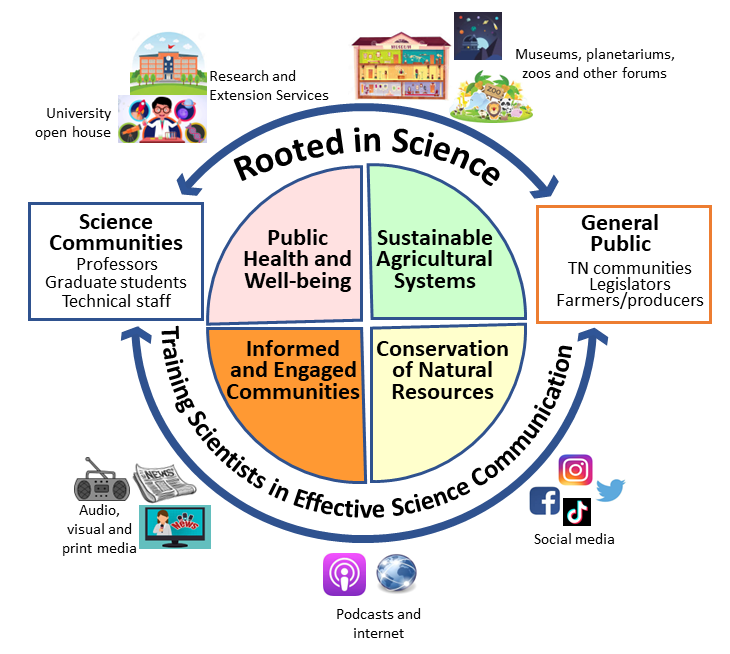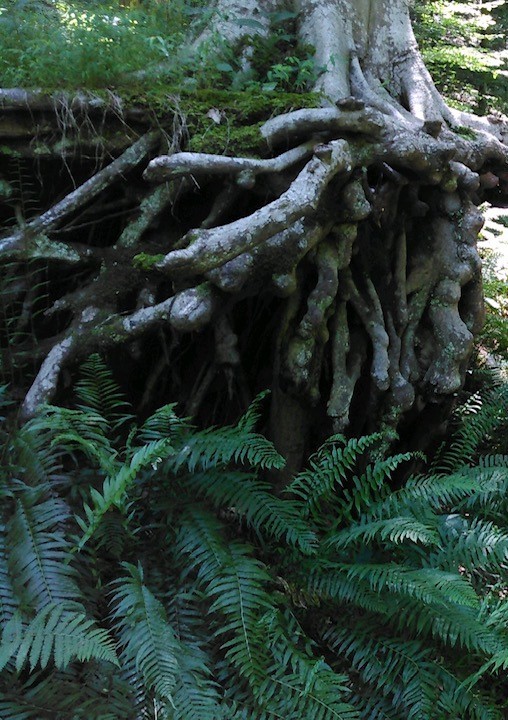Training Scientists to Effectively Communicate with the General Public
Over the past few centuries, humankind has benefited from unprecedented scientific discoveries and technological innovations, enabling humans to live longer and healthier lives. While the need for and reliance on science has increased in modern society, the general public has developed a growing discontent and distrust towards science and scientists. This distrust is not due to lack of education or knowledge barriers but due to a lack of meaningful interactions between the general public and scientists. Therefore, there is a critical need for scientists to effectively engage with the general public.
Improved communication between STEM workers and the general public will enable people to accept the innovative technologies being developed at the scientific forefront and utilize them to solve humankind’s needs. However, scientists seldom receive comprehensive training to effectively communicate their research with the general public, hence science communication is carried out based mostly on their intuition. There is significant research in communication disciplines regarding what constitutes persuasive communication and how people use information to make decisions based on their values and beliefs. To tailor these strategies to training STEM researchers, the “Rooted in Science” (RiS) program was created.


The RiS training program was initially conceived by Drs. Priya Voothuluru and Nicole Labbé from the Center of Renewable Carbon, and they have brought together a diverse team of communication experts to develop a curriculum suited to train STEM trainees in effective science communication. In summer semesters 2022 and 2023, Dr. Carole Myers (Professor in the College of Nursing & Department of Public Health) and Dr. Mark Littmann (Hill Chair of Excellence in Science, Technology and Medical Writing in the College of Communication and Information) designed the initial training course to introduce the students to various forms of science communication. Dr. Laura Miller (Associate Professor in the School of Communication Studies) and Mr. Clint Elmore (Video Production Specialist and Director of the Volunteer Channel at the University of Tennessee) joined the team of instructors to spearhead the lectures on speaking to the general public and develop videos with the students, respectively.
Eight graduate students were recruited from the Bredesen Center, the Center for Renewable Carbon and the Department of Biosystems Engineering and Soil Sciences. During the 8-week training program, graduate students were introduced to several communication strategies, and learned how to frame their research ‘story’ to communicate their research with the general public. They were also trained in selecting the adequate format/type of media to use to reach target audiences while developing and delivering key messages. The students then collaborated with Mr. Elmore and students in the School of Journalism and Electronic Media to create videos of their research stories. These videos will inform the general public about the cutting-edge research in material sciences being conducted at University of Tennessee and how it could benefit the society in the long-term. Please enjoy viewing the final products, linked below!
2024 Videos
2023 Videos
2022 Videos
The RiS program was funded for a year (2022) by the Department of Energy through an Energy Efficiency and Renewable Energy grant and will be continued from 2023-2024 with funding from a United States Department of Agriculture grant. The RiS program will foster multi- and cross-disciplinary educational and research opportunities and, in the long-term, will enhance the quality of research, education, and outreach activities at University of Tennessee.
